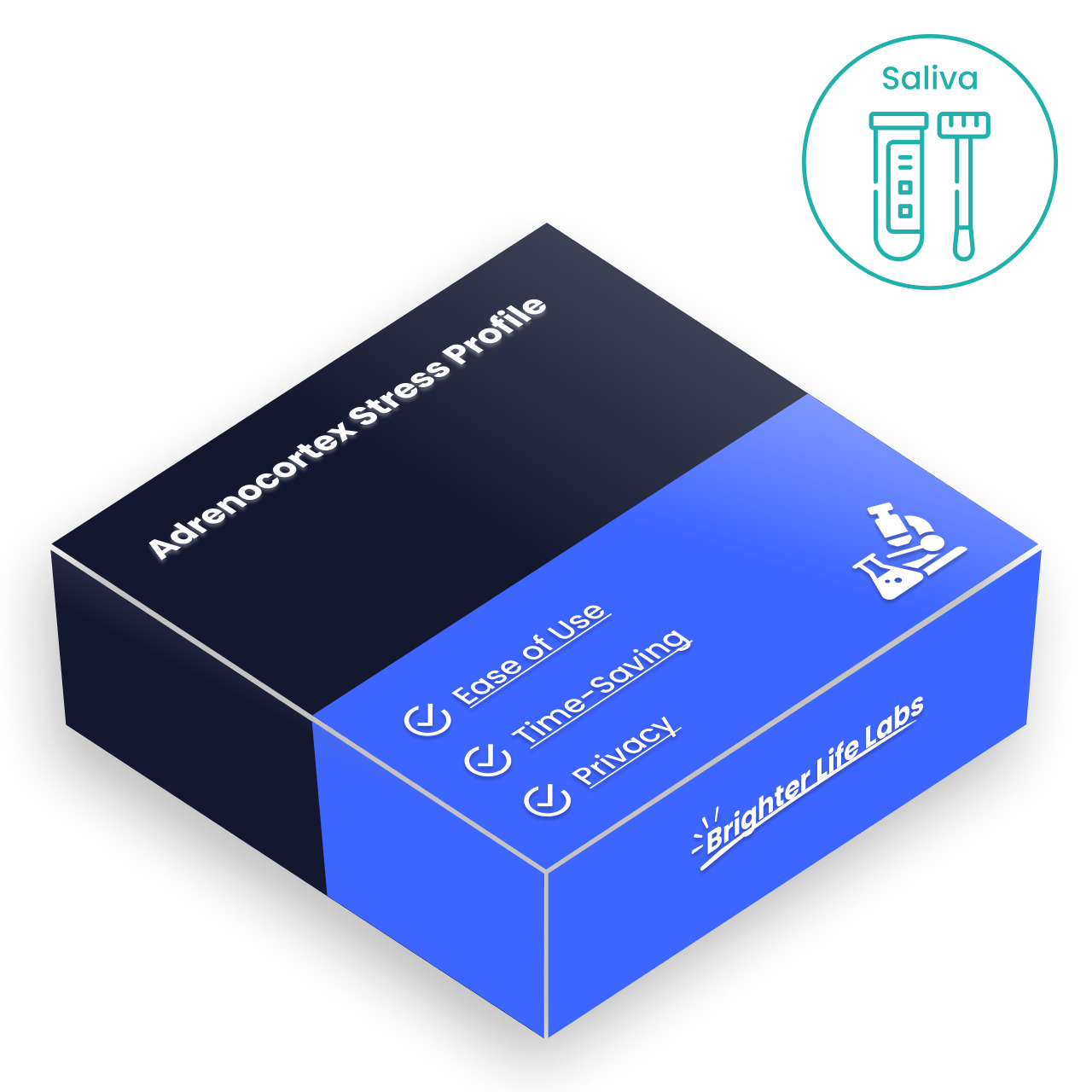Genova
Adrenocortex Stress Profile
Adrenocortex Stress Profile
Couldn't load pickup availability
The Adrenocortex Stress Profile (ASP) provides an assessment of the Hypothalamic-Pituitary-Adrenal (HPA) axis using carefully timed salivary samples of the hormones cortisol and DHEA. Salivary testing is an easy, non-invasive option to measure unbound, biologically active parent hormone levels.
Four salivary samples measured throughout the day are used to give insight into the natural circadian diurnal cortisol rhythm, and help clinicians address specific daily stressors.
The isolated evening cortisol has distinct clinical implications. Elevated evening cortisol is linked to insomnia and associated with various diseases such as diabetes, cardiovascular disease, hormonally driven cancers, and osteoporosis.
DHEA is measured once in the 7:00 AM – 9:00 AM sample and a ratio of DHEA to cortisol is calculated to provide insight into anabolic/catabolic balance.
Daily hassles, chronic pain, blood sugar dysregulation, work stressors, and poor relationship quality can alter the HPA axis. Imbalances in adrenal hormones can have a wide range of negative consequences that can adversely impact a patient's overall quality of life. The symptoms of HPA axis dysfunction can be vague and are highly variable but may include: fatigue, insomnia, weight gain, depression, GI complaints, and chronic pain. HPA axis dysfunction is associated with many conditions including:
- hypertension
- cardiovascular disease
- gastrointestinal and immune dysregulation
- diabetes and metabolic syndrome
- depression
- chronic fatigue
- persistent pain
- neurodegenerative disease and cognitive decline
Adrenocortex Stress Profile testing can reveal these HPA axis imbalances and provide direction for clinical intervention with targeted therapeutic treatments such as nutrient support and/or adaptogens, stress management, behavioral modification and lifestyle interventions.
Share


